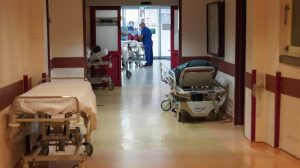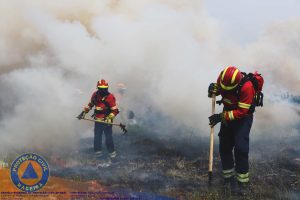Artificial intelligence brings opportunities in areas such as education and democracy, but it carries risks, so it is necessary to advance in the regulation of this matter, defended experts who participated in a conference on the subject.
On the sidelines of the conference “Artificial Intelligence – Business and Democracy”, promoted by Lusa, the Director-General of the National Security Office, António Gameiro Marques, stressed that there are opportunities and risks for society and democracy associated with artificial intelligence (AI).
“I think there are a lot of opportunities in the good stuff, in the area of medicine, in the area of democracy. I think democracy can gain a lot from good AI models that are geared towards this,” he said in statements to Lusa.
António Gameiro Marques defended that “we must put this issue very high on the agenda of the rulers not only of the countries, but also of the European Union and the United Nations so that it definitely enters the agenda.”
For the head of the National Security Office, “if these systems are not regulated, they can turn into something that does a lot of harm to society, instead of being able to do the good that there are some requirements of our range.”
In the same vein, Marcia Narine Weldone, a lawyer and professor at the University of Miami School of Law specialising in AI and security, outweighs the risks, because if you get it right “in the regulation of AI and in the implementation.”
An AI expert pointed out some of the benefits of AI, including, “the ability to completely democratise education,” since it allows that whether you are “in a small town in Brazil, Mozambique or Canada” you can “get the same education.”
He also indicated the opportunities in the area of health, considering that “health costs will decrease” and there will be “personalised medicines,” as well as a “huge potential impact on human rights,” as well as “climate change. Right now, people are using AI to predict the weather more accurately, to observe deforestation,” he said.
On the other hand, for the analyst the biggest immediate risks are “disinformation,” remembering that in the United States, there are upcoming elections, the risk of cyber attacks, or the loss of some jobs.
“Now is the time to improve skills, to replenish, to retrain. Of governments and companies working together, of investing money in preparing people for jobs that at the moment don’t even exist,” he said.
In this sense, it advocates a reflection on the educational system, the governmental system, the family system, and religious institutions.
“Everyone who has influence in society needs to come together because the risks can be cataclysmic. There may be people who have the benefit of being able to use AI and whose jobs will increase, whereas others will find their jobs automated and themselves out of work.”
Can AI be controlled or will it outsmart all of us?
Samantha Gannon
info at madeira-weekly.com






